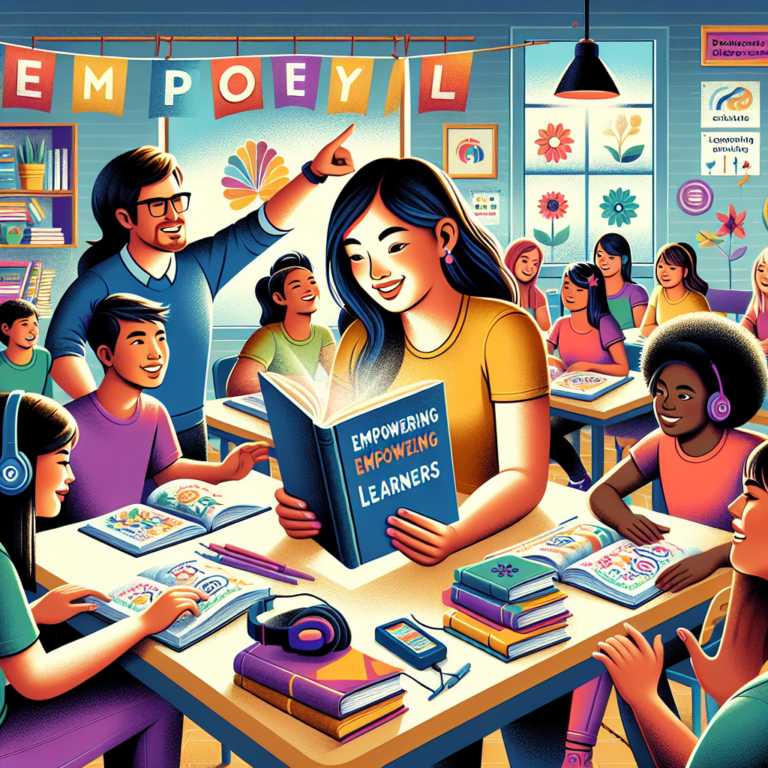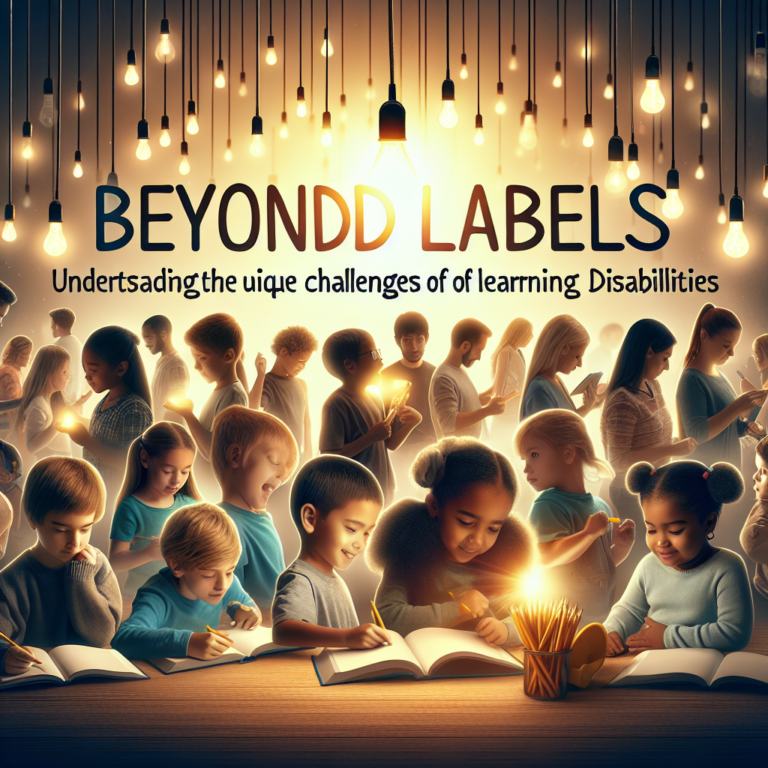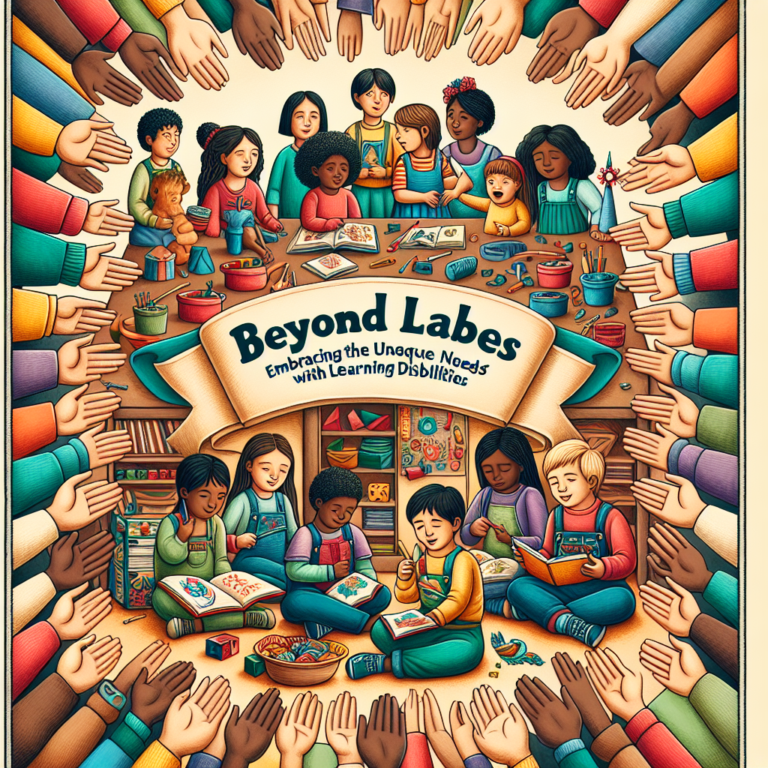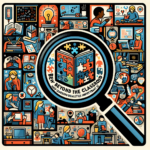
Support Beyond the Classroom: Essential Financial Resources for Parents of Learning-Disabled Children
Introduction
As our understanding of learning disabilities evolves, so does our recognition of the multifaceted challenges that families face. When parents learn that their child has a learning disability, it can unleash a cascade of emotions—worry, confusion, and a pressing sense of responsibility. One of the crucial aspects of navigating this journey is ensuring that the right financial resources are in place. Support Beyond the Classroom: Essential Financial Resources for Parents of Learning-Disabled Children seeks to shine a light on various essential financial tools, grants, and community resources available to ease the financial burden on families navigating this often tumultuous path.
Understanding the Landscape
The Reality of Learning Disabilities
Learning disabilities encompass a range of conditions, including dyslexia, ADHD, and autism spectrum disorders, among others. The importance of timely intervention and support cannot be overstated, as the right resources can dramatically alter a child’s educational and personal trajectory.
Financial Strains on Families
Initial assessments, specialized educational tools, tutoring, and therapy can quickly accumulate. A 2018 study found that families with children facing learning disabilities spend, on average, over $10,000 annually in educational resources and therapy sessions. This financial torment often leads to stress and anxiety for parents who want to provide their children with the best support possible.
Essential Financial Resources
Understanding the variety of financial resources available can empower parents and provide them with the tools needed to navigate their child’s learning journey more effectively. Let’s explore some of these resources in detail.
1. Government Grants and Funding
a. Individuals with Disabilities Education Act (IDEA)
IDEA is a cornerstone of educational support for children with disabilities, ensuring that children have access to a Free Appropriate Public Education (FAPE). Parents can seek funding for specialized services, materials, and even tuition for private schools if public options are inadequate.
b. State-Specific Programs
Many states offer additional funding for learning-disabled children. For example:
- California: The California Department of Education provides grants specifically for special education services.
- Texas: The Texas Education Agency has a range of programs that assist in funding educational resources.
Case Study: A family in California accessed IDEA funding to provide their child with specialized tutoring. Through meticulous documentation and collaboration with their school district, they secured $15,000 for necessary resources, proving the potential of IDEA when effectively utilized.
2. Scholarships and Private Funding
Numerous organizations offer scholarships tailored for families facing the challenges of learning disabilities.
a. The College Scholarships for Students with Learning Disabilities Program
This program assists students with documented learning disabilities in pursuing higher education. Scholarships can significantly alleviate the financial burden of college tuition, ensuring that students can focus on their studies rather than financial stress.
b. Local Non-Profits
Organizations like The Learning Disabilities Association of America provide resources and fundraising opportunities at the community level. Many local chapters offer scholarships for families struggling to pay for essential educational supports.
Case Study: A student from Ohio received a scholarship from the local chapter of The Learning Disabilities Association, covering a major portion of her college tuition. As a direct result, she could dedicate more time to her studies instead of working multiple jobs to fund her education.
3. Special Needs Trusts
Special Needs Trusts can be an effective way to manage and protect financial assets for children with learning disabilities. This ensures that families can set aside funds for future needs without inadvertently affecting eligibility for government assistance programs.
4. Tax Credits and Deductions
Parents of children with learning disabilities can often benefit from specific tax relief options, including:
a. The Child and Dependent Care Tax Credit
Parents who pay for care services, including tutoring and therapies, may be eligible for tax credits, which can substantially offset costs.
b. Medical Expense Deductions
If a child has ongoing medical expenses related to their learning disability—such as therapy sessions—parents may deduct circumstantial medical expenses on their tax returns.
Analysis: Engaging with a financial advisor can offer further insight into how to effectively leverage these tax credits to maximize savings.
5. Health Insurance Options
Policies vary greatly, but many health insurances cover therapeutic services and assessments necessary for learning disabled children. Parents should consult their policy to understand what services are covered and how to navigate claims for specialized services.
6. Community and Peer-Based Support
a. Online Resources
Websites like Understood.org provide a plethora of information on financial strategies, while forums and communities such as ADDitude offer real-world advice from parents facing similar challenges.
b. Local Support Groups
These groups not only offer emotional support but may also share tips on financial assistance available in local areas. Many groups host fundraising events which can be another source of funds.
Case Study: A local support group in Florida organized a fundraising initiative that connected families with local businesses, successfully raising over $20,000 for families in need of educational resources.
Utilizing Financial Resources Effectively
Navigating financial resources requires careful planning and proactive engagement. Here are some strategies to ensure parents can make the most of available resources:
Budgeting Wisely
Understand where every dollar goes by tracking expenses related to educational needs. This can highlight areas where financial aid can significantly impact.
Keeping Detailed Records
When applying for grants or seeking funding, having a well-organized record of costs, services, and communications makes a difference. This documentation can strengthen the application process and facilitate quicker assessments by administrative bodies.
Networking with Professionals
Establishing relationships with educators, social workers, and financial advisors can yield critical support and insights. Many have knowledge of unadvertised resources that can be invaluable.
Staying Informed
The landscape of available services and funding constantly evolves. Staying updated on new programs or revisions to existing ones through newsletters and community meetings can ensure families don’t miss out on beneficial opportunities.
Conclusion
Navigating the financial landscape while supporting a learning-disabled child can feel like climbing an insurmountable mountain. However, understanding and leveraging Support Beyond the Classroom: Essential Financial Resources for Parents of Learning-Disabled Children can transform the experience. Resources abound—government assistance, scholarships, and community connections—waiting to be discovered. By placing a focus on informed financial planning, parents can convert challenges into opportunities, ensuring that their children receive the educational support they truly deserve. Ultimately, flourishing in this journey isn’t just about the resources—it’s about fostering a growth mindset and building resilience for both parents and children.
FAQs
1. What resources are available for parents of learning-disabled children?
Parents can explore government grants, scholarships, health insurance options, and local support networks specifically designed to aid families with learning disabilities.
2. How can I find out if my child qualifies for funding through IDEA?
Contact your local school district and request an Individualized Education Program (IEP) meeting. Your child’s educational needs will be assessed, and eligibility determined through this plan.
3. Are there specific scholarships for college students with learning disabilities?
Yes, many organizations, including the College Board and the Learning Disabilities Association, offer scholarships specifically for these students. It’s beneficial to investigate each scholarship’s criteria to identify potential fits.
4. Can tax credits apply to tutoring or therapy services?
Yes! Many parents can deduct expenses related to educational therapy and tutoring from their taxes, depending on whether they qualify under existing tax relief definitions.
5. How do I set up a Special Needs Trust for my child?
Consult a financial advisor or an estate planning attorney to ensure the trust is structured correctly to protect your child’s eligibility for government assistance while also providing for their future needs.
In the quest for support and understanding, navigating this landscape doesn’t have to feel overwhelming. By closely following and utilizing available resources, parents can pave a brighter path for their learning-disabled children.











